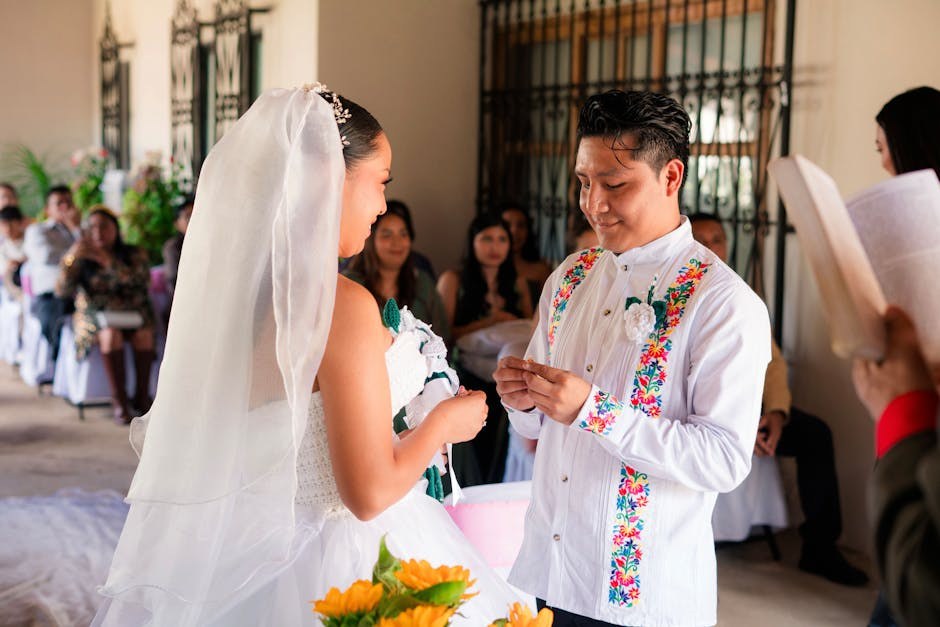Opening your heart to someone new feels thrilling and risky at once – you’re letting another person see who you are, and that vulnerability can stir up doubts. For many people, the fear of commitment sits beneath those doubts, quietly shaping choices, inventing reasons to keep things casual, and pushing the next step further and further away. This isn’t a character flaw or a convenient excuse; it’s a pattern of avoidance that can stall a promising relationship and leave both partners confused about where things stand.
What commitment anxiety is (and what it isn’t)
Commitment anxiety is the uncomfortable tug you feel when a relationship begins to deepen. It may show up as hesitation, procrastination, or sudden “logic” that dismantles any talk of labels or long-term plans. The fear of commitment is real and often rational in origin – it can spring from painful experiences, shaky trust, or simple uncertainty about the future. What it is not: a universal truth that relationships trap you, or a get-out-of-relationship card to play whenever things get serious. When the fear of commitment drives decisions, it affects both people, not just the person who feels it.
Because it’s easier to critique a partner than to examine your own patterns, recognizing the signals matters. Once you can name the fear of commitment, you can decide what you want rather than letting anxiety decide for you.

Why the label can feel heavy
Many people equate commitment with permanent restriction – a life sentence with fewer options and less freedom. Work pressure can become a convenient shield, and monogamy can be misread as monotony. Yet commitment, at its healthiest, isn’t a cage; it’s a choice to invest, to be clear about your intentions, and to build something that can evolve. When the fear of commitment clouds that reality, it’s the fear that shrinks your world, not the commitment.
Are you resisting the next step?
In long-term dating, thoughts about what comes next naturally appear – meeting family, sharing a home, possibly marriage. If contemplating that next step brings dread instead of warmth, your reaction deserves attention. Relationships are living things; they grow or they stall. If you freeze the growth out of habit, the fear of commitment may be steering you more than you realize.
Underneath the hesitation: change
At the core of many commitment struggles sits the same concern: change. The unknown can be unnerving. Rather than admit “I am scared of change,” people sometimes accumulate reasons to delay – picking apart a partner’s habits, forecasting worst-case scenarios, or insisting that timing is never quite right. The fear of commitment often dresses up as perfectionism or practicality, but at heart it’s a defense against uncertainty. Naming that defense is the first step toward softening it.

Clear signs you’re dodging commitment
No one owes the world a relationship, and there are seasons where staying single is the healthiest choice. Still, if you keep repeating the same pattern – leaning in until things deepen, then pulling away – these signs can help you see what’s happening. Consider them prompts for reflection, not a verdict. If multiple items resonate, the fear of commitment may be active in your life.
The idea of choosing one partner for the long haul makes you uneasy even when you enjoy the present relationship. You’re happy today, yet imagining tomorrow with the same person triggers resistance – a classic hint of the fear of commitment.
You focus on how a relationship might end rather than how it can be nurtured. Because nothing is guaranteed, you keep one foot out the door to avoid disappointment.

Sex feels exciting at first, then predictability creeps in and you assume intimacy will always fade. Instead of refreshing the connection, you treat routine as a reason to retreat.
You believe commitment will block personal goals – career moves, travel, passion projects. Sometimes it’s a genuine conflict; more often, it’s an automatic story fueled by the fear of commitment.
You insist everything is perfect as-is, so “why label it?” You frame marriage or exclusivity as social rules rather than a personal promise that could reassure your partner.
You have a meticulously timed life plan and resist any step that might disrupt it. Instead of communicating your milestones, you keep your partner in the dark to avoid their needs reshaping yours.
You’ve faced repeated ultimatums about “where this is going.” The deadlines make you angry, but you also avoid giving a clear answer – a stalemate reinforced by the fear of commitment.
Old betrayals still cast long shadows. You compare your current partner to a hurtful ex, quietly expecting history to repeat.
Solitude is sacred to you, and you assume commitment means losing personal space. Instead of negotiating boundaries, you preemptively pull back.
You constantly ask whether your partner is “The One,” using that uncertainty to justify staying uncommitted indefinitely.
You haven’t had a sustained relationship for a very long time. Casual dating feels safer because it keeps the fear of commitment from being tested.
A past breakup hit hard – infidelity, abandonment, or a shocking ending. To avoid that pain again, you keep emotional investments small.
You keep a mental list of deal breakers and notice flaws faster than strengths. The list protects you but also keeps intimacy at arm’s length.
Labels like “boyfriend,” “girlfriend,” or “partner” make you flinch. The moment someone uses one, you back away.
You end solid relationships without a clear reason. When things become “too good,” you manufacture conflict to regain distance.
Future plans – a weekend trip, a wedding invite two months out – make you uncomfortable. You avoid committing even to short timelines.
Meeting a partner’s parents or family feels like a trap. You find polite ways to postpone it indefinitely.
You resist natural relationship progress. You’re content to stay exactly where you are, indefinitely, because the fear of commitment whispers that change is dangerous.
You keep conversations shallow. Personal stories, values, or dreams feel “too intimate,” so you steer back to safe topics.
You don’t imagine a long future with anyone. When asked about “where this is going,” you shrug and keep things vague.
You avoid meeting your partner’s friends – the social web that would make your presence more official.
Leaving something simple at your place – a toothbrush, a book – feels like an invasion. Your reaction is bigger than the object.
You prefer relationships centered mostly on sex. Physical closeness without deeper investment keeps the fear of commitment quiet, at least for a while.
You introduce your partner as “a friend” or skip introductions altogether. It’s a way to stay unclaimed in public.
You doubt the idea of a lifelong match. If “soulmates” sound like fantasy, you use skepticism to keep hope – and risk – low.
Independence is nonnegotiable. You fear that letting someone influence your decisions means losing yourself, so you avoid negotiating shared choices.
You pick partners who are unavailable – already committed, far away, fundamentally incompatible – so the relationship has a built-in end date.
You critique other couples harshly, calling their lives boring or settled. Judging them props up your decision to stay uncommitted.
You live in fantasy – dreaming of an ideal partner who remains out of reach, which makes real, imperfect intimacy easy to dismiss.
Your standards are so precise that hardly anyone qualifies. Perfection becomes a shield that the fear of commitment hides behind.
You’re still nursing a broken heart and use that pain to justify keeping new people at a distance.
You settle into “fun for now” arrangements you know won’t last. Temporary setups feel safer than earnest commitment.
You exhibit habits that repel closeness – constant travel, unpredictable schedules, or abrasive defenses – and then read the exits as proof that relationships don’t work.
You rationalize your patterns with lofty ideas about limitless love or infinite options, while sidestepping your own role in repeated endings.
You become inventive with excuses whenever a milestone approaches – meeting family, moving in, or defining the relationship – and sometimes go silent to avoid decisions.
You adore the chase. Once reciprocation arrives and the relationship steadies, the thrill fades and you bolt – textbook fear of commitment dynamics.
When moving in becomes a detour
Plenty of couples live together before marriage and thrive. Problems arise when cohabitation serves as a workaround – a way to enjoy closeness while dodging conversations about promises and plans. If moving in is treated as a substitute for clarity, misunderstandings multiply. A shared address can deepen love, but it doesn’t replace an explicit commitment. Approach the move as a meaningful step, not an escape hatch built by the fear of commitment.
Reality isn’t all-or-nothing
It’s tempting to divide relationships into “always wonderful” or “doomed.” Real life sits in the gray – two people learning, adjusting, and sometimes stumbling. The mind tends to remember the bad more vividly, which can magnify your caution. Even so, consistently avoiding commitment almost always erodes a relationship. You don’t have to promise forever, but you do have to be honest about what you’re willing to build. That honesty weakens the grip of the fear of commitment.
Talk it out, even if it’s awkward
If you care about your partner, say what’s true for you. Name the anxieties. Share what kinds of change feel scary and what would help the relationship feel safe. You can set a gentle pace and still move forward. Clear, compassionate conversation eases assumptions on both sides and often reduces the fear of commitment simply by replacing silence with specifics.
Common roots to examine
Understanding where your hesitation comes from helps you choose what to do next. The list below isn’t exhaustive, but it maps closely to what many people discover when they look beneath the fear of commitment.
Lingering trauma or unresolved stress. Experiences of betrayal, neglect, or other harm can make trust feel risky. Even indirect trauma – like witnessing chaotic relationships growing up – can fuel caution.
Timing and age. There’s cultural pressure to “live fully” before settling down. For some, that pressure aligns with genuine readiness; for others, it becomes a reflex to postpone intimacy without examining why.
Career absorption. Work can provide identity and purpose. When it consumes most energy, there’s little left to cultivate partnership, and the fear of commitment gains momentum.
Incomplete closure with an ex. Missing chapters from the past can keep you comparing or waiting, which blocks new bonds from forming.
Disinterest in relationships themselves. If you simply don’t want a long-term partnership, that’s valid. The key is acknowledging it clearly – to yourself and to anyone you date – rather than letting the fear of commitment write the script in secret.
Should you commit right now?
Not everyone is ready, and that’s okay. Forcing yourself to say “yes” before you mean it tends to harm both people. If autonomy or a specific life chapter calls loudly, honoring that call can be wise. The honest path is to communicate your stance instead of offering mixed signals while the fear of commitment quietly runs the show.
Ways to work through it
You don’t have to conquer everything at once. Aim for progress, not perfection. The ideas below echo the themes above – clarity, choice, and small steps that lower the volume on the fear of commitment.
Discuss, don’t disappear. If you like the person you’re seeing, say so directly. Name what scares you and what pace feels doable. Willingness to talk is a form of care that builds trust.
Finish the unfinished. If travel, career leaps, or personal experiments feel essential, plan them intentionally rather than using them as a fog. Pursue them, then reassess what “settling” really means to you.
Weigh feelings, not only logistics. Calendars, budgets, and social schedules matter – but so do joy, calm, and curiosity. Notice what choices expand your life versus shrink it.
Stop measuring yourself against others. Your life doesn’t have to look like your friend’s, your sibling’s, or your parents’. Choose based on your values, not borrowed scripts that keep the fear of commitment in charge.
Ask what you actually risk. Sometimes staying uncommitted costs more than committing – lost intimacy, lack of support, or the slow ache of keeping someone at arm’s length.
Check your heart. Love can exist before labels. If you feel it, consider letting your actions reflect it in small, consistent ways that make room for deeper promises later.
Putting choice back in your hands
There’s a clock in most relationships – not an ultimatum, but a natural need for orientation. People who are ready for partnership can’t stay in limbo forever. If you recognize the fear of commitment shaping your choices, you have options: be transparent about wanting something casual, ask for a slower pace with specific milestones, or decide to invest and see how growth feels when you participate fully. The important thing is to choose deliberately rather than defaulting to delay. When you do, you’ll either protect someone you like from unnecessary hurt or open the door to a steadier, more satisfying bond that evolves with you.